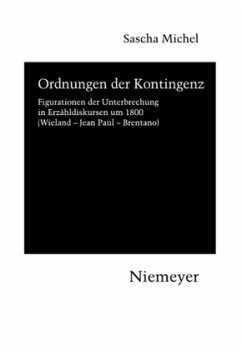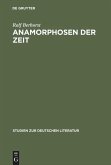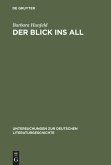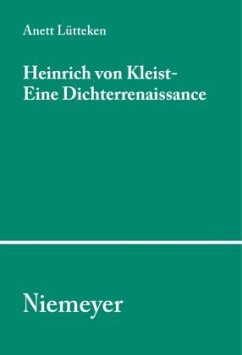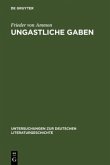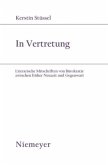The modernist awareness of contingency is variously prefigured in German narrative discourse around 1800. In the course of the accounts of their lives, the characters in the novels »Agathon« (Wieland), »Siebenkäs« (Jean Paul), and »Godwi« (Brentano) are repeatedly confronted with coincidences befalling them, while the texts themselves are full of reflections indicating that the order and meaning they impose on the material could always have been different. The study examines the various modes of enactment employed in connection with narrative contingency, using the contingency concept to take a new perspective on the major literary epoch around 1800.
Um die Kontingenz von Erzähldiskursen beschreiben zu können, muss man die raffinierte Ordnungsarbeit nachvollziehen, die für das "wilde", digressive Erzählen ebenso konstitutiv ist wie für das "ordentlich" teleologische. Für die Epoche um 1800 bedeutet dies, dass man insbesondere den metaphysischen Ehrgeiz der Texte ernst nimmt. Denn mit ihrer poetologischen Ordnungsarbeit partizipiert die Literatur auch an den Ordnungsmodellen und -problemen metaphysischer Diskurse. Zwar besteht diese Partizipation in höchst riskanten Randgängen, bei denen Ordnung zugleich hergestellt und unterbrochen wird. Bei aller Riskanz aber und allem ironischen Wissen um die Kontingenz jeder Ordnungssetzung träumen die Romane um 1800 mit ihrem Ursprungsbegehren und ihrer programmatischen Teleologie immer noch den alten metaphysischen Traum von Endgültigkeit und verlässlicher Ordnung. Ziel der vorliegenden Arbeit ist es, dieser für die Epoche des Subjekts symptomatischen Ambivalenz textanalytisch Rechnung zu tragen. Ausgehend von einem narratologisch operationalisierten Kontingenzbegriff, widmet sich die Studie zunächst den Ordnungsversuchen philosophischer und poetologischer Subjekt-Diskurse, um schließlich mit Hilfe akribischer Lektüren die abgründigen Inszenierungen narrativer Kontingenz in den Romanen von Christoph Martin Wieland, Jean Paul und Clemens Brentano nachzuzeichnen.
Hinweis: Dieser Artikel kann nur an eine deutsche Lieferadresse ausgeliefert werden.
Um die Kontingenz von Erzähldiskursen beschreiben zu können, muss man die raffinierte Ordnungsarbeit nachvollziehen, die für das "wilde", digressive Erzählen ebenso konstitutiv ist wie für das "ordentlich" teleologische. Für die Epoche um 1800 bedeutet dies, dass man insbesondere den metaphysischen Ehrgeiz der Texte ernst nimmt. Denn mit ihrer poetologischen Ordnungsarbeit partizipiert die Literatur auch an den Ordnungsmodellen und -problemen metaphysischer Diskurse. Zwar besteht diese Partizipation in höchst riskanten Randgängen, bei denen Ordnung zugleich hergestellt und unterbrochen wird. Bei aller Riskanz aber und allem ironischen Wissen um die Kontingenz jeder Ordnungssetzung träumen die Romane um 1800 mit ihrem Ursprungsbegehren und ihrer programmatischen Teleologie immer noch den alten metaphysischen Traum von Endgültigkeit und verlässlicher Ordnung. Ziel der vorliegenden Arbeit ist es, dieser für die Epoche des Subjekts symptomatischen Ambivalenz textanalytisch Rechnung zu tragen. Ausgehend von einem narratologisch operationalisierten Kontingenzbegriff, widmet sich die Studie zunächst den Ordnungsversuchen philosophischer und poetologischer Subjekt-Diskurse, um schließlich mit Hilfe akribischer Lektüren die abgründigen Inszenierungen narrativer Kontingenz in den Romanen von Christoph Martin Wieland, Jean Paul und Clemens Brentano nachzuzeichnen.
Hinweis: Dieser Artikel kann nur an eine deutsche Lieferadresse ausgeliefert werden.

